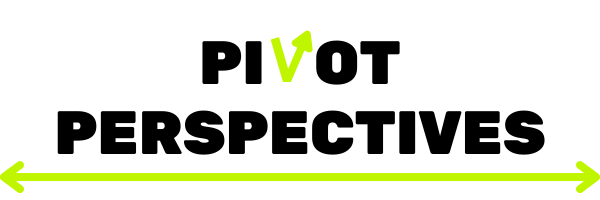- The Corporate Pivot
- Posts
- 🚧 Land Surveying Business Making $852K/yr
🚧 Land Surveying Business Making $852K/yr

Welcome Back to The Corporate Pivot!
If the most strategic thing you do all week is figure out how to dodge a surprise 'Got a minute?' chat, it’s time for a bigger challenge. The Corporate Pivot will show you how to turn your daily grind into business ownership. Keep reading for stories from those who’ve done it and find businesses waiting for you.
Confusing Corporate Saying of the Day:
“No you can’t bet on who’s last to the meeting”
Professional Translation: “Gambling is never appropriate at work.”
Corporate Pivot Translation: “The boss chose wrong and now wants to follow the rules.”

Pivot Perspectives: This week, Sam talks about turning the chaos of wedding expenses into opportunity, exploring silk flower rentals—and wait till you hear how treasure hunts are real and someone built a business around them! Tyler reminds us that in business, certainty is a myth—get comfortable with doubt, gather what you can, and dive in. | Acquisition Alerts: 💰 Home Remodeling and Woodworks Business making $312k 💰💰 Land Surveying Services making $852k 💰💰💰 Profitable Med Spa with Absentee Ownership making $1.63m | Mindset Matters: |

Sam’s Perspective (1st Time Buyer)
🆕 Status Update: Weddings
Let’s talk about what a money pit they are. The entire industry is a gold mine. I know firsthand because I got married this year, and wow, it was $$$. A regular two-tier cake? $20. But call it a wedding cake, and suddenly it’s $200. Need transportation? Better say it’s for a corporate event, or you’ll be paying 2-3x more. But the craziest part? The flowers. For a 100-person wedding, we got a quote for—no joke—$7,000.
Thankfully, my wife is savvy and found out about silk flowers. They look identical to real ones and only cost $1,500 to rent, including setup. Weddings have always intrigued me, so now we’re seriously considering starting a silk flower and event rental business. We’ve even looked at some venues for sale, but that’s a future move since those are massive operations. The silk flower business, on the other hand, has a much lower barrier to entry—and the demand is wild.
We ran the numbers, and it just makes sense. If there’s one thing people are totally fine spending money on, it’s weddings. And we know firsthand there’s a market for silk flowers because we used them! The owner of the company we rented from told me she started it as a side hustle, and it blew up so much that she quit her job to run it full-time. Pretty awesome, right? This is something I really believe in, so stay tuned—especially if you’re getting married soon. We could save you a ton of money!
📚 Cool Business Idea: Treasure Hunting as a Business – Project Skydrop
Treasure hunt for gold? What is this, a fairy tale? Well, business ideas today are proving that even the wildest concepts, paired with great marketing, can become profitable ventures.
Enter Project Skydrop, a blend of National Treasure and a leprechaun’s pot of gold. Participants pay $20 to join and access a virtual map covering several states. Every day, the search area shrinks, leading hunters closer to the prize: a $26,000 golden trophy and a Bitcoin wallet with additional growing value. Here’s the twist—players can pay extra through the app to unlock more clues, making the game part treasure hunt, part microtransaction strategy.
The Business Case
Gamification of Adventure: Project Skydrop transforms a traditional treasure hunt into an interactive experience, keeping participants engaged with the thrill of discovery.
Freemium Model Meets Real-World Hunt: With entry fees and in-game purchases, revenue grows exponentially. So far, over 2,000 participants have joined, generating more than $40,000 in revenue, half of which contributes to the prize pool.
Viral Potential & Community Growth: Treasure hunters share their progress across social media, fueling buzz and attracting new players. The shrinking map builds anticipation, driving further engagement.
Scalable with Limited Overhead: With much of the experience managed digitally through maps and apps, operating costs stay low while the game scales easily across regions.
Project Skydrop shows how gamified experiences with low barriers to entry can build excitement, community, and profits. When business feels like an adventure, $20 is a small price for the chance to hit the jackpot—and be part of something unforgettable.
Tyler’s Perspective (Multiple Businesses Owned)
🚨 Tip of the Week: The golden question — how do you know when it’s the “right one”? Will you be 100% certain, or will you still have some reservations? Sam and I recently discussed this, and while it’s certainly subjective, my thought is that there will always be concern, and you’ll never be 100% certain that you made the right decision (although, unfortunately, you may know pretty quickly if you made the wrong decision). In my view, the point of diligence is to be “comfortable enough” to move forward. If the lead is in an industry that you’ve previously had experience, this can help mitigate some of your concerns, but even in that instance, you will likely still have some reservations. I’m a big proponent of gathering as much information as possible, and making the most informed decision as possible, but the reality is, you’ll have to make decisions without certainty. Get comfortable being uncomfortable and still having to make decisions.

💰 Deals < $500k
Business Name: Home Remodeling and Woodworks Business
Revenue: $1,165,000
Asking Price: $400,000
Profit: $312,000 (Profit Multiple = 1.28x)
Location: Fort Lauderdale, FL
Established: N/A
✅ Pros:
High-visibility location: Situated on a major road with great visibility, enhancing walk-in traffic.
Comprehensive equipment included: Sale includes vehicles, machinery, and a customer list for seamless operations.
⚠️ Cons:
High rent expense: Monthly rent of $14,900 could affect margins during slower seasons.
📈 Growth Opportunities:
Expand showroom offerings: Introduce more premium furniture displays to attract higher-paying customers.
Increase marketing efforts: Leverage online advertising to boost customer acquisition and local visibility.
💰💰 Deals $500k - $2m
Business Name: Land Surveying Services
Revenue: $3,232,499
Asking Price: $1,300,000
Profit: $852,264 (Profit Multiple = 1.52x)
Location: Austin, TX
Established: 1990
✅ Pros:
Decades of industry presence: Long-standing reputation with loyal clients in Central Texas.
Experienced workforce: A dedicated team with well-defined roles ensures operational continuity.
⚠️ Cons:
Owner reliance: New ownership may need to invest time in learning core operations during the transition.
📈 Growth Opportunities:
Adopt drone and GIS technologies: Improve efficiency and expand service offerings through advanced tech.
Introduce hydrographic surveying: Tap into new markets by adding waterbody surveying services.
💰💰💰Deals $2m-$10m
Business Name: Profitable Med Spa with Absentee Ownership
Revenue: $2,694,731
Asking Price: $6,500,000
Profit: $1,630,371 (Profit Multiple = 3.99x)
Location: Las Vegas, NV
Established: 2015
✅ Pros:
Steady client contracts: Many customers on multi-year plans provide predictable revenue.
Absentee ownership model: Business can run without daily involvement from the owner, ideal for investors.
⚠️ Cons:
Limited operating hours: Current schedule restricts growth; expansion of hours could unlock more profit potential.
📈 Growth Opportunities:
Expand operating hours: Operating seven days a week could significantly increase customer volume and revenue.
Introduce new treatments: Add popular services such as IV therapy or injectables to attract more clients.

**If today is your first day reading, go to Chapter Recaps to get up to speed!
The Lean Startup: Ch. 8 Part 3
Welcome back and Happy Monday! Today is Columbus Day, & if you’re anything like me you’re PISSED that the banks are closed but I have to go to work… I want a holiday! Whatever… I didn’t want one anyways. Today we are going to be continuing our discussion on Pivoting and defining a few different types of Pivots. Now, previously we discussed that Pivots are SCARY. You should be more scared of a FAILURE to pivot, opposed to pivoting itself. It is spooky season after all.

Eric talks about how it’s so scary to pivot that many companies fail to do it at all. He gives an example from IMVU, and how they had fallen into a classic startup trap. They had been so successful with their early efforts that they had ignored the principles behind them. Before enjoying their success, many wanted them to NOT build their low-quality MVPs, and now that they were successful people wanted them to “not fix what isn’t broken”. Even though they liked that advice better, it was equally wrong.
“Once you have found success with early adopters you want to sell to mainstream customers. Mainstream customers have different requirements and are much more demanding.”
IMVU decided to perform what is called a customer segment pivot, similar to Votizen from late last week’s discussion! This type of pivot is especially tricky because some of the actions that made you successful with early adopters were diametrically opposed to the actions you have to master to be successful with mainstream customers. IMVU had gotten really good at optimizing, tuning, and iterating but in the process, they lost sight of the purpose of those activities. They were chasing growth, revenue, and profits opposed to testing hypotheses in the service of the company’s vision. They had to reacquaint themselves with their new mainstream customers! IMVU needed to invest in a major product overhaul designed to make the product easier to use, but they had been focused on fine-tuning, so they had STOPPED making investments like these! Investing in quality, design, and larger projects didn’t require that IMVU abandon their experimental roots, it actually allowed them to realize their mistakes and pivot successfully.
There is a plethora of different pivots, and honestly, it’s just easier to define them out here as opposed to weaving them into a story for you…

Zoom-in Pivot – when what was previously considered a single feature in a product becomes the whole product.
Zoom-out Pivot – when a single feature is insufficient to support a whole product. (The opposite of the Zoom-in Pivot)
Customer Segment Pivot – when the company realizes that the product it is building solves a real problem for customers but that they are not the type of customers it originally planned to serve.
Customer Need Pivot – When the problem we’re trying to solve is not important to the customer. You discover a new problem that your company can solve for them.
Platform Pivot – When there’s a change from an application to a platform or vice versa.
Business Architecture Pivot – When a company switches architecture from a high-margin, low volume to a low-margin, high volume architecture (or vice versa).
Engine of Growth Pivot – When a company changes its growth strategy to seek faster or more profitable growth (viral, sticky, paid growth model)
Channel Pivot – Recognition that the same basic solution could be delivered through a different channel with greater effectiveness.
Technology Pivot – When a company discovers a way to achieve the same solution by using a completely different technology.
Wow, ok your homework for next week, learn these definitions. There will be a test next Monday… Although you may recognize the pivots described the ability to pivot is no substitute for sound strategic thinking.
“A pivot is not just an exhortation to change. Remember, it is a special kind of structured change designed to test a new fundamental hypothesis about the product, business model, and engine of growth.
As always, if you want to discuss topics of this chapter (or any previous or future chapters) join our Discord channel.
Read more at corppivot.com!
Hope you enjoy this week's insights and happy deal hunting! Remember, if you find these updates helpful, share this newsletter with a friend!
